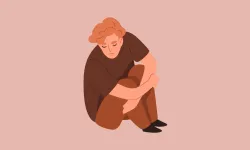Coming to terms with being divorced can be challenging. Not only do you have to deal with a broken heart, but you also have to contend with shattered dreams and major life changes.
The prospect of navigating life without your spouse might be overwhelming or completely inconceivable. You might be experiencing intense, conflicting emotions and finding it hard to make sense of everything, let alone keep your head above water.
It doesn't help that a part of you constantly obsesses over whether you did the right thing. So, if you hate being divorced, it's understandable. However, you won't always feel this way; you can move on and be happy.
In a nutshell, here's what you'll need to do:
Things to know
- Accept the divorce, let go, and embrace your new life.
- Work through any lingering feelings and allow yourself to go through the stages of grief.
- Prioritize self-care and lean on positive support systems to aid the recovery process.
There's a lot more to explore because, if we're being honest, healing is rarely ever a simple or predictable three-step process. To help you move on, I'll be taking you through the following:
- Are Divorced People Unhappy?
- Why You Hate Divorce
- How Long Does It Take To Recover From Divorce?
- How To Get Over A Divorce
Are Divorced People Unhappy?
Divorce is associated with dramatic declines in happiness and psychological well-being. This is because divorce creates new challenges while compounding existing ones.

Some issues that deeply affect divorced people include:
- Financial stress
- Custody disagreements
- Legal issues
- Low self-confidence
- Strained family dynamics
- Rebuilding their lives
- Finding new relationships
However, this isn’t the full story. Other studies reveal that women are actually happier and more satisfied with their lives after their divorce. And this is because women are better at adaptation and prioritizing healthy recovery after divorce.
These findings make one thing clear: divorced people can be happy or unhappy depending on how they approach life following a divorce.
Is it common to regret divorce?
Half of all divorcees experience some sort of regret after divorce. They question whether divorce was the right decision. Some even contemplate giving things another try. Are you in the same boat?
Why You Hate Divorce

You’re dealing with a significant loss
Because divorce doesn't dissolve feelings or memories, a part of you might still love and miss your ex. What you're experiencing is a normal response to losing a loved one.
But here's the thing: you’re not only dealing with the loss of a loved one, but you’re also dealing with shattered hopes and dreams. And you’re going through all of this while grappling with significant lifestyle changes.
Your family unit looks a lot different than you imagined
Walking away from an unhappy marriage isn't easy, and when children are involved, it's even harder. You might experience lingering guilt over how your family dynamic has changed.
Maybe the divorce proceedings didn't go as planned, and you don't see your children as often as you'd like anymore. The family tension brought on by divorce isn't helpful either. It's not uncommon even for adult children to act out or take sides.
Being a single parent isn't easy, and even if you're getting child support, adjusting to your new way of life can be stressful.
You're anxious about the future
The uncertainty of what lies ahead might make you question getting divorced. You might obsess over what could have been and worry about starting over. You might be asking yourself questions like, “will I be alone forever?” or “will I ever be happy again?”
You feel guilty
Maybe you tried all you could to salvage your relationship. Perhaps you tried marriage counseling and even saw a few positive signs during separation. But ultimately, you just couldn’t work things out.
If you hate being divorced and regret walking away from your marriage, remember that sometimes relationships can't be salvaged. Even if you only remember the good parts of your marriage now, keep in mind that you had genuine issues that led to a divorce.
For example, if your relationship was toxic or if you were trapped in an abusive marriage, walking away was definitely for the best.
How Long Does It Take To Recover From Divorce?
Generally, the amount of time it takes to get over a divorce varies from person to person.

The recovery process isn't linear or predictable. Additionally, strong emotional attachments take months or even years to resolve.
There are also many factors that could affect an individual's healing process, such as their personality, support systems, and experiences. The bottom line is, moving on after divorce is unique to everyone, which is why it's best to take the time you need to heal in your own way.
How To Get Over A Divorce
While moving on from a divorce will look different for everyone, the following strategies can help:
Allow yourself to let go
If you're having a difficult time letting go, consider making a clean break. If you're in a position to block and avoid your ex, do so. Get rid of any strong memory triggers and simply focus on detaching.
If you still need to keep in touch for the sake of your kids, avoid seeing your ex (unless absolutely necessary). It's crucial not to stalk them on social media either, as this can often trigger feelings of anger, sadness, and grief.
Take time to reflect
Divorce can shatter your self-esteem and leave you questioning yourself. It's crucial to forgive yourself and regain your self-confidence. Moving on will require you to let go of your old identity as a husband or wife and embrace a new one. This involves rediscovering who you are and figuring out how to navigate being single.
For your own growth and personal development, engage in honest self-reflection. Ask yourself why exactly you hate being divorced. Is it because you miss your old life? Are you afraid of starting over?
Reflect on why things didn't work out, and learn from the experience. Take responsibility for your part in things and practice radical acceptance to help yourself let go.
Take care of yourself
During stressful times, it's essential to honor your mental, physical, and emotional needs.

So, focus on eating well and getting enough sleep. Engage in daily physical activity to get a consistent daily dose of feel-good hormones. Other ways to take care of yourself include:
- Self-love, patience, and compassion
- Speaking to yourself kindly
- Keeping self-criticism in check
- Avoiding toxic people or behaviors
- Setting healthier boundaries
- Prioritizing your mental health
Maintain a positive attitude
Instead of focusing on the fact that you hate being divorced, focus on maintaining a positive attitude. Clinging to the past, or the future you envisioned, will stall your efforts to move on.
It's better to focus on the positive aspects of your life. You may also want to consider practicing gratitude. In fact, studies show that gratitude is a powerful way to improve your self-esteem and boost your overall mood. To get started, find at least one thing to be grateful for each day and allow the list to grow.
Avoid unhealthy coping strategies
Avoid turning to alcohol, drugs, gambling, or any other self-destructive behaviors to deal with stress. These behaviors are temporary distractions that tend to prolong pain and suffering.
Learn how to process negative emotions in a healthy way; this is will be more helpful in the long run. Equally, you may be using toxic positivity to cope and keep negative thoughts at bay. Sadness is inevitable, so don't push it away completely.
Set clear boundaries with your ex
Communicating with an ex-husband or ex-wife is often a source of emotional stress. If you're co-parenting and still need to stay in touch because of the kids, it’s important to set clear boundaries. Be civil with each other, and avoid trying to be friends, especially at first. Rather, give yourselves time to fully heal and adjust.
Don’t go through it alone

Divorce is a significant life change that can affect your mental and emotional health. Therefore, it's advisable to speak to someone who has experience working with divorced individuals.
Seeing a professional can help you sort through complex emotions and make the transition easier. Eventually, you'll stop focusing on the fact that you hate being divorced and start feeling hopeful about your new life.
Support groups are also a great way to connect with people who are going through the same thing. You're brought together by similar experiences, making it the perfect place to receive guidance, comfort, and validation.
Celebrate your new life
Make a conscious effort not to focus on the past or the fact that you hate being divorced. Instead, channel your mental energy into creating a happier life.
A major part of celebrating your new life is pursuing the things that make you happy. With this in mind, chase any hopes, goals, and dreams that you set aside to focus on your marriage.
Find joy in the people you love
Maintaining healthy relationships is a crucial part of the healing process. So, try to find joy in the people you love. Don’t be afraid to reach out and lean on them for support.
If you have children, cherish every moment with them. Remember to work on your psychological state so you can be emotionally present during this transition.
Start dating again
Dating again after divorce can be a liberating experience. While it can help you move on and boost your confidence, it is advisable to wait until you feel ready. You'll make better decisions, and you're more likely to experience a happy relationship.
A failed marriage won't stop you from enjoying a healthy, long-term relationship, especially if you work on any personal issues that could get in the way of trusting the right person again.
Think about what you want out of future relationships and the kind of partner you want to be. What things were lacking in your marriage in the first place? Reflect and use your insights to create more satisfying relationships.
Make new friends

Spending time with supportive friends can improve your sense of well-being. If you have no friends after divorce, focus on forging new friendships. Any hobbies and interests that you neglected while married are great ways to meet new people. Did a toxic marriage keep you away from your friends? Try reconnecting with them; chances are, they’ll be happy to hear from you.
Switch up your routine
Switching up your routine will help you counter negative feelings, stop you from ruminating, and distract you from other unhelpful patterns of behavior. Similarly, forming new habits will create a strong sense of renewal and hope.
Honor Your Feelings
Keep in mind that you’ll cycle through periods of anger, disbelief, sadness, and acceptance until you fully heal. It's crucial to honor your feelings, as suppressing them will only slow down your recovery.









